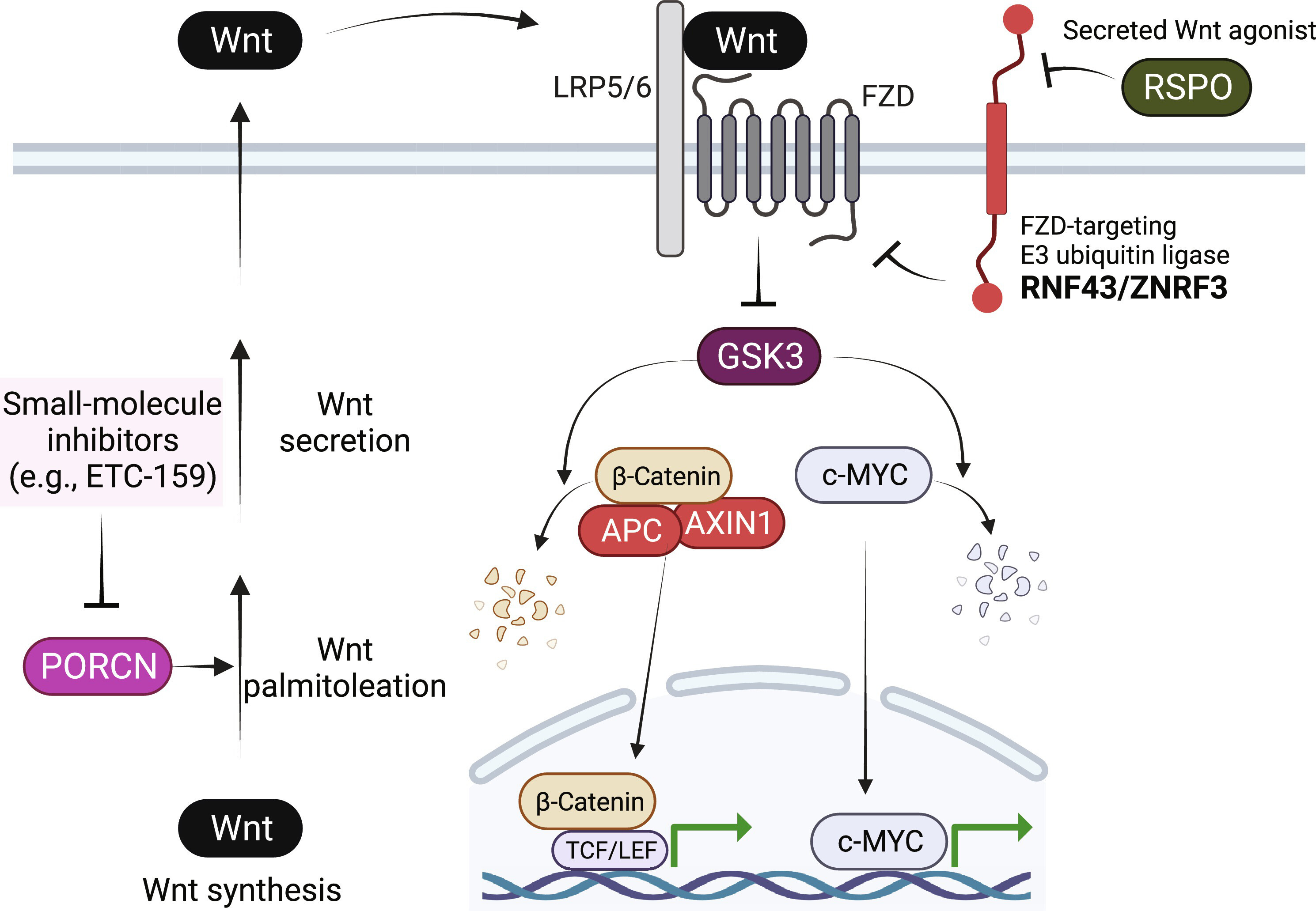Recently, in a research report titled "Recurrent mutations in tumor suppressor FBXW7 bypass Wnt/β-catenin addiction in cancer" published in the international magazine Science Advances, scientists from Duke-NUS Medical School and other institutions have revealed why some pancreatic and colorectal cancer patients do not respond to Wnt inhibitors. Wnt inhibitors are a new class of cancer drugs currently under development to treat the above cancers. The findings could not only provide a new cancer therapy target, but also provide a potential screening tool to help identify patients who would benefit from new therapies.
Many gastrointestinal cancers grow out of control when a mutation sets up a key biological pathway (Wnt) that controls cell growth. In more than 80% of colorectal cancers and some pancreatic cancers, the Wnt signaling pathway is often blocked in the above manner, which drives the tumor to grow wildly. For such patients, drugs that block the Wnt pathway (called Wnt inhibitors) may bring great prospects, and they have always been the focus of research by scientists. Although Wnt inhibitors have shown some promise in some cancer patients, this study also found that other patients may be resistant. When drugs fail to effectively slow tumor growth, understanding the molecular mechanisms behind this resistance may be critical to developing new, personalized treatments.
By focusing on colorectal and pancreatic cancers harboring overactive Wnt signaling pathways, the researchers evaluated cancer cell responsiveness using the Wnt inhibitor drug ETC-159, whose efficacy has been established in preclinical models. By analyzing genetic data from responsive and non-responsive tumors, the researchers discovered a second mutation in a gene called FBXW7 that drives cancer cells to become resistant to drugs that block Wnt signaling. FBXW7 mutations occur in approximately 15% of colorectal cancer patients and can alter the cancer's personality. As a result, researchers no longer focused on the Wnt pathway, and the drug no longer had the corresponding effect.

Figure 1. Schematic illustration of the Wnt signaling pathway. (Zhong Z, Virshup D M. 2024)
Detecting FBXW7 genetic mutations in tumors may prevent many patients from receiving ineffective treatments, which may make it not only a potential biomarker, but also a target for the development of new cancer therapies. Predicting drug resistance is critical for precision oncology research. This study reveals how cancer escapes its dependence on Wnt signaling and further lays a solid foundation for the development of new cancer therapies. Now researchers are trying to target the dorsal pathways activated by FBXW7 mutations to overcome drug resistance. The findings add to scientists' previous understanding of the mechanisms by which pancreatic cancer becomes resistant to therapy and increase their understanding of how cancers find alternative pathways to grow and survive.
| Cat.No. | Product Name | Price |
|---|---|---|
| CSC-DC005627 | Panoply™ Human FBXW7 Knockdown Stable Cell Line | Inquiry |
| CSC-RT0018 | Human FBXW7 Knockout Cell Line-DLD-1 | Inquiry |
| CSC-RT0029 | Human FBXW7 Knockout Cell Line-DLD-1 | Inquiry |
| CSC-RT0071 | Human FBXW7 Knockout Cell Line-HCT116 | Inquiry |
| CSC-RT0661 | Human FBXW7 Knockout Cell Line-HEK293T | Inquiry |
| CSC-SC005627 | Panoply™ Human FBXW7 Over-expressing Stable Cell Line | Inquiry |
| AD06136Z | Human FBXW7 adenoviral particles | Inquiry |
| LV12708L | human FBXW7 (NM_001013415) lentivirus particles | Inquiry |
| LV12709L | human FBXW7 (NM_018315) lentivirus particles | Inquiry |
| LV12710L | human FBXW7 (NM_033632) lentivirus particles | Inquiry |
| CLKO-0167 | FBXW7 KO Cell Lysate-HEK293T | Inquiry |
By targeting more precise therapeutic targets, these findings may bring the prospect of personalized therapies closer to reality. In addition to discovering FBXW7, the researchers also found that these Wnt inhibitor-resistant tumors become susceptible to the experimental drug dinaciclib. The next step will be to further investigate the efficacy of dinaciclib alone and in combination with other agents in treating these cancers. The researchers' ultimate goal is to help treat patients with tumors that are fully drug-resistant by targeting alternative cancer pathways unleashed by FBXW7 mutations. They hope to translate relevant research findings into more targeted and effective therapeutic strategies.
Researcher Patrick Tan said that cancer has a certain diversity, and it is important for us to understand and map the diversity of cancer so that we can help develop truly personalized treatments. Not only does it work for the individual patient, but it also prevents them from receiving unnecessary treatment. Taken together, the results of this study suggest that a deeper understanding of cancer cell primary resistance to anti-Wnt/β-catenin therapy may lead to the selection of more suitable patients and the use of alternative mechanism-based therapies.
Reference
Zhong Z, Virshup D M. Recurrent mutations in tumor suppressor FBXW7 bypass Wnt/β-catenin addiction in cancer. Science Advances, 2024, 10(14): eadk1031.

